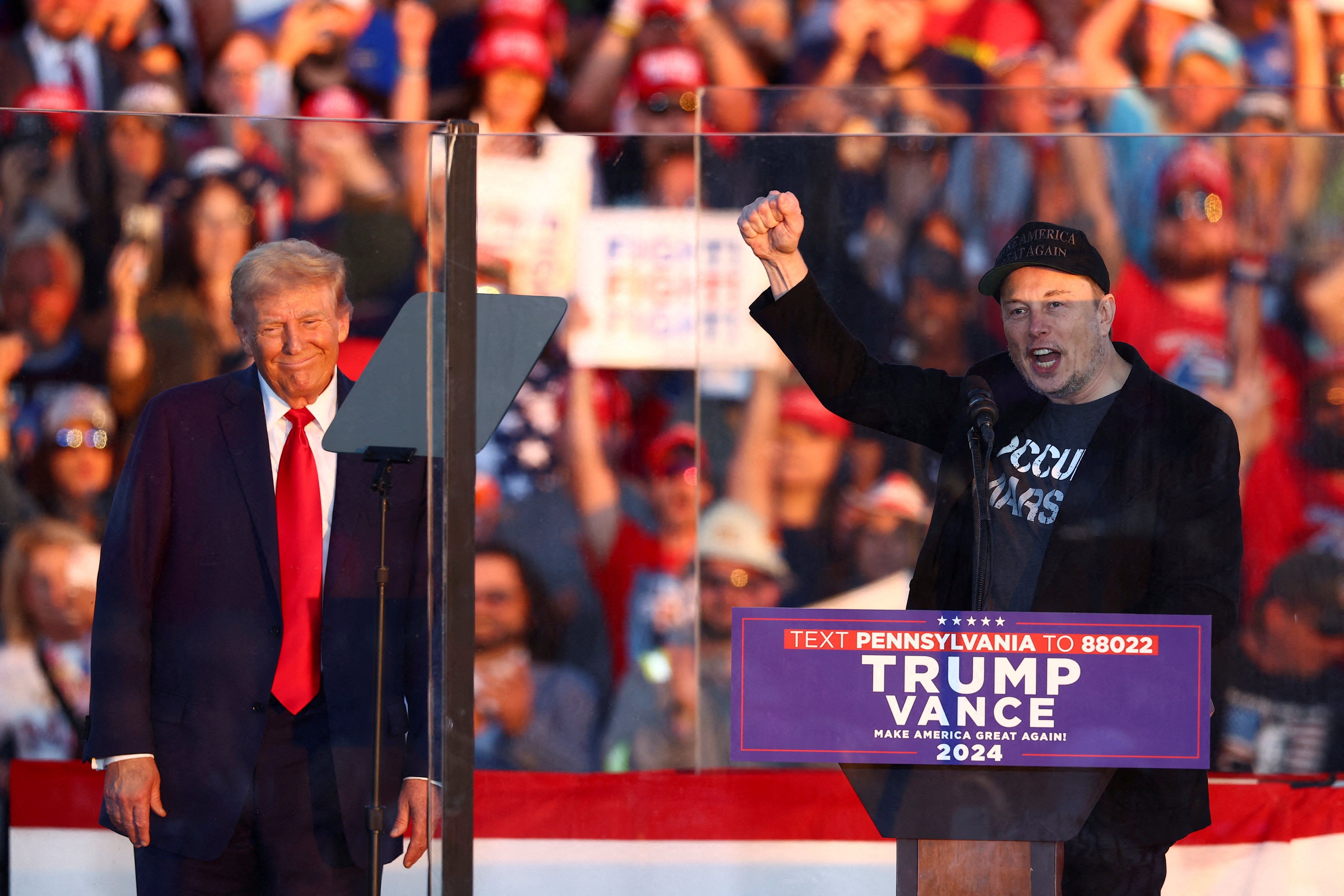With X CEO Elon Musk openly toying with the idea of slashing Social Security in his role on the so-called "Department of Government Efficiency," Rolling Stone took a look at all the ways that Musk and fellow businessman Vivek Ramaswamy stand to benefit financially from their own recommendations.
Right off the bat, the publication found that Musk stands to benefit financially from his department's proposal to ax construction on a California high-speed rail line.
"It’s probably no coincidence that Musk has always opposed the bullet train and once hypothesized a fantastical, headline-grabbing alternative in order to thwart momentum for the project," writes Rolling Stone. "If Musk still has knives out for high-speed rail despite the failure of the hyperloops, there’s one quite obvious explanation: Tesla. Faster and more convenient trains in themselves are a threat to auto manufacturers, since they would reduce reliance on cars, but Musk has also staked the company’s future on the concept of self-driving robotaxis."
ALSO READ: 'He's a backstabber!' Trump supporters melt down over new Cabinet rumor
When it comes to Ramaswamy, Rolling Stone finds that he stands to benefit from proposals to slash drug authorization requirements given his $670 billion stake in pharmaceutical company Roivant.
Perhaps most audacious, however, is Musk's suggestion that the government "delete" the Consumer Financial Protection Bureau, which has drawn the ire of financial institutions over the years for its efforts to claw back ill-gotten gains from corporations and return them back to consumers.
Musk's crusade against the CFPB is being egged on by billionaire investor and cryptocurrency enthusiast Marc Andresseen, who was once a Hillary Clinton supporter but who switched aggressively to Trump this year.
"In a November interview with podcast kingpin and fellow Trump endorser Joe Rogan, Andresseen egregiously misrepresented the CFPB, falsely claiming that it is controlled by Sen. Elizabeth Warren (she only helped to devise it) and that it is 'debanking' people, or closing their financial accounts, over their political views (in fact, it has specifically sought to protect individuals from such discriminatory business practices by payment apps)," the report notes. "Perhaps Andresseen was unwilling to grant the CFPB credit for securing almost $20 billion in relief for consumers since it was founded because three years ago it shut down a scam online loan startup backed by his VC firm, Andreessen Horowitz (a16z), distributing $40 million to customers who were deceived."
